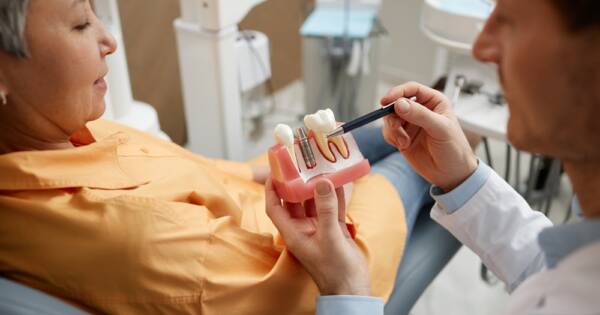Colon cancer, also known as colorectal cancer, is one of the most common types of cancer worldwide, affecting both men and women. It typically starts as growths called polyps in the inner lining of the colon or rectum. Over time, some of these polyps can turn into cancer. Early detection, preventive measures, and treatment advancements have led to better survival rates.
Risk Factors and Causes
Several factors contribute to the risk of developing colon cancer. While the exact cause remains unclear, there are known risk factors that increase the likelihood of developing the disease:
- Age: Colon cancer is more common in individuals over the age of 50, though younger people can develop it as well, particularly if they have risk factors.
- Family History and Genetics: Having a family history of colon cancer or other types of gastrointestinal cancers can increase your risk. Specific inherited conditions, such as Lynch syndrome or familial adenomatous polyposis (FAP), also increase the likelihood of developing colon cancer.
- Lifestyle Factors: Diets high in red meat, processed foods, and low in fiber, combined with sedentary lifestyles, are linked to an increased risk of colon cancer. Smoking and excessive alcohol consumption also contribute to the risk.
- Inflammatory Bowel Disease: Conditions such as Crohn’s disease and ulcerative colitis, which cause chronic inflammation of the colon, can increase the risk of colon cancer.
- Obesity: Obesity has been shown to increase the risk of developing colon cancer due to the associated inflammation, hormonal imbalances, and insulin resistance.
Symptoms of Colon Cancer
In the early stages, colon cancer may not present noticeable symptoms, which is why regular screening is so important for early detection. As the cancer progresses, the following symptoms may arise:
- Changes in bowel habits: This can include diarrhea, constipation, or a feeling that the bowel doesn’t empty completely.
- Blood in stool: This may be visible as bright red blood or may cause stool to appear darker in color.
- Unexplained weight loss: Losing weight without changing diet or exercise routines can be a sign of colon cancer.
- Abdominal discomfort: Persistent cramping, bloating, or pain in the abdomen can indicate the presence of colon cancer.
- Fatigue: Unexplained tiredness or weakness is common in people with colon cancer.
- Iron-deficiency anemia: Colon cancer may cause internal bleeding, which can lead to anemia, characterized by fatigue, pale skin, and dizziness.
If any of these symptoms occur, it’s important to seek medical advice for further evaluation.
Screening and Early Detection
Screening for colon cancer is crucial for individuals who are at higher risk or over the age of 50. Early detection through screening tests can catch the disease before symptoms even appear, significantly improving the chances of successful treatment. Common screening methods include:
- Colonoscopy: A procedure where a long, flexible tube with a camera is inserted into the colon to inspect the lining for polyps or abnormalities.
- Fecal Occult Blood Test (FOBT): This test looks for hidden blood in the stool, which can be an early sign of colon cancer.
- Flexible Sigmoidoscopy: A shorter version of a colonoscopy that examines the lower part of the colon for abnormalities.
- CT Colonography: Often referred to as a “virtual colonoscopy,” this is a non-invasive imaging procedure that creates detailed pictures of the colon.
The American Cancer Society recommends starting screening at age 45 for average-risk individuals, though earlier screening may be necessary for those with a family history of colon cancer or other risk factors.
Treatment Options for Colon Cancer
Treatment for colon cancer depends on the stage of the disease, the location of the cancer, and the overall health of the patient. Common treatment options include:
- Surgery: The most common treatment for colon cancer involves surgically removing the tumor. If the cancer is localized, surgery may be the only treatment necessary. For cancers that have spread to surrounding tissues, additional treatments may be required.
- Chemotherapy: Chemotherapy uses drugs to kill cancer cells or stop their growth. It may be used before surgery to shrink a tumor, after surgery to remove any remaining cancer cells, or for advanced-stage colon cancer to control growth and alleviate symptoms.
- Radiation Therapy: Radiation therapy uses high-energy rays to kill or damage cancer cells. It’s typically used for rectal cancer or to shrink tumors before surgery.
- Immunotherapy: This type of therapy stimulates the immune system to recognize and fight cancer cells. Immunotherapy is often used for advanced colon cancer that has not responded to other treatments.
- Targeted Therapy: Targeted therapies focus on specific molecules involved in the growth of cancer cells. These treatments aim to block the growth and spread of cancer cells with fewer side effects than traditional chemotherapy.
Prevention and Lifestyle Modifications
While some risk factors for colon cancer, like family history, cannot be changed, making lifestyle modifications can reduce your risk:
- Eat a balanced diet: Focus on high-fiber foods such as fruits, vegetables, and whole grains. Limit the consumption of red meat and processed foods.
- Stay active: Regular physical activity has been shown to lower the risk of colon cancer.
- Maintain a healthy weight: Obesity increases the risk, so maintaining a healthy weight through diet and exercise is essential.
- Limit alcohol consumption and avoid smoking: Both smoking and excessive alcohol intake increase the risk of developing colon cancer.
- Get regular screenings: Regular screenings can help detect colon cancer early, increasing the chances of successful treatment.
Early Detection and Lifestyle Changes Are Key to Preventing Colon Cancer
Colon cancer is a serious health concern, but with early detection, treatment advances, and lifestyle changes, the prognosis for those diagnosed has significantly improved. By understanding the risks, symptoms, and treatment options for colon cancer, individuals can take proactive steps toward their health. Whether through regular screenings, making healthier lifestyle choices, or discussing concerns with a healthcare provider, staying informed about colon cancer is key to prevention and successful treatment.





